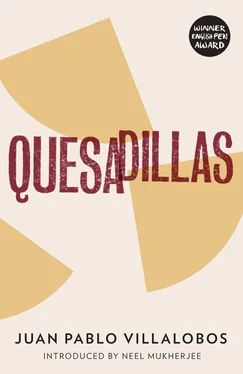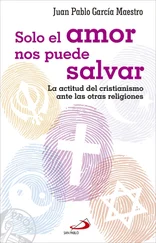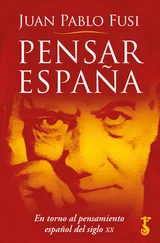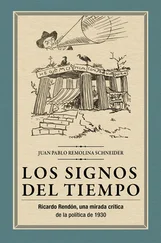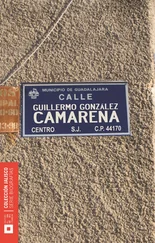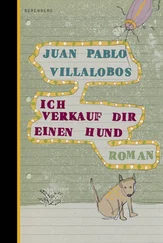‘Not real? So they’re invented?’ replied a bold officer who seemed to have decided it would be simpler to expose our falsehoods than to find the twins.
‘They’re biovular twins, dizygotic twins!’ my mother shouted, tearing at her hair, fully involved with the tragedy now, given that the situation had ended up in ancient Greece.
The officer took me aside, stared at me with immense pity and, stroking my back like a little dog, asked me, ‘Is your mum crazy?’
‘I don’t know,’ I replied, because I wasn’t absolutely sure. I’d never really had to consider it.
Since there still wasn’t enough excitement, we added the issue of the twins’ indistinguishable apparel, because it really was difficult to tell us all apart. I don’t just mean for other people; even we found it hard. My parents contributed to the standardisation with their approach to economies of scale: they bought us all the same clothes so that they could haggle the price down, jeans and coloured T-shirts, always the same clothes, one size too big so they’d last longer, which had the hideous effect of making us all look permanently badly dressed. When the clothes were new they looked as if we’d borrowed them from someone else and by the time they fitted us perfectly they were worn out. And that’s without taking into account that the rags were passed down from old to young by means of a synchronised system of inheritance.
Luckily my father turned up and the arguments stopped, although some employees continued to throw us suspicious glances that betrayed some highly serious ontological aspersions. We scoured every corner of the shop, combed the surrounding streets and didn’t find the pretend twins. The only thing the search achieved was to prove to me that we were poor, really poor, because in the shop there were a shitload of things we’d never bought.
‘ Mamá , are we ever going to stop being poor?’ I asked, looking up at her as the tears dripped from her chin and landed in my hair. I made use of them to give my hair a brush, smoothing down a few stray tufts.
‘Your little brothers have gone missing! This is not the time to ask that question!’
To me, however, the two things were equally important: finding the pretend twins and ascertaining our family’s hopes for socio-economic advancement.
Two policemen accompanied us home to collect the twins’ birth certificates and some photographs of them taken a few days ago at school. The officer who had questioned me about my mother’s mental health turned out to be the local police chief, despite his lack of tact — or because of it, most probably. He looked carefully at the photos and his suspicions were confirmed.
‘I knew it. They’re not twins.’
He had a great deal of hair on his head, different kinds of hair: straight, frizzy, wavy, curly; there were even several degrees of curls. You had the impression that up there, among such capillary chaos, his ideas were getting tangled up. He tried to introduce himself with a surname — like this: Officer Surname — but it was one of those surnames that millions of people have, really hard to tell apart. We needed anything that would save us from the panic we felt at that moment, and among the possibilities that presented themselves we found nothing better than a childish joke, which helped us to believe that what was happening wasn’t so serious after all, that it would be sorted out, that we were allowed to laugh in the midst of such distress. And so we nicknamed him Officer Mophead.
The stellar strategy of the police consisted of plastering every wall in town with posters showing a photo of the twins. Underneath the photo screamed the word ‘MISSING’ in capital letters. Immediately below, the details were given in lower case: the names of my MISSING brothers, Castor and Pollux, the run-of-the-mill names of my parents (my grandparents hadn’t had the imagination to screw them up), the telephone number of the police and our home number. At the very bottom it said: ‘THINK THEY ARE TWINS’. We didn’t even offer a reward; we’d decided to take advantage of our new-found fame to broadcast our poverty, and my father’s Greek delusions, to all and sundry.
The days went by and we didn’t find them. At first we looked for them eagerly; it was the only thing we did. My father didn’t go to work, and as soon as we got back from school all we did was worry. Meanwhile, Aristotle concentrated wholeheartedly on another essential task: blaming me.
‘It’s your fault, arsehole,’ he would repeat, and my remaining siblings delighted in imitating him.
I was able to ignore them without anxiety because I was an expert in matters of guilt. It was in order to weather situations like this that it had fallen to me to live in this town, be born into this family and go to a school where they specialised in doling out sins to us. I used my rhetorical skills to formulate an irrefutable defence: ‘No one goes missing unless they want to.’
This reply made a profound impression on my siblings, as it did on me, because deep down — where the words made their impression — we all admitted that we’d love to be in the pretend twins’ place, to go missing, to leave this lousy house and the damn Cerro de la Chingada behind once and for all.
Our sadness peaked one night when they interviewed Officer Mophead on the nine o’clock news. From what we could see on the screen, the make-up department had worked hard at trying to shape his hair into some sort of style. The result was alarming.
‘What’s happening to Officer Mophead’s mop?’ asked Electra, cementing for good the nickname we’d assigned him.
After carrying out the obligatory tasks of describing the twins’ physical features and giving their names — which led to a brief digression into Graeco-Roman mythology — the presenter and his interviewee agreed to prolong the evening’s programme and fulfil their lifelong ambition of starring in the ten o’clock telenovela . Judging by the exceptionally high standard of hyperbole they were coming out with, they’d been born to do melodrama or, if their talents were not innate, at least the country had prepared them thoroughly.
‘So tell me, how are the parents?’ asked the presenter, contemptuously putting to one side the notes he had been tidying on his desk, making his intentions clear: right, let’s stop this fannying around and talk about what really matters.
‘They’re totally devastated, as you can imagine. De-va-stat-ed.’ He pronounced the word syllable by syllable, with repeated shakes of the strange form on top of his head.
‘Understandably — it must be hard to get over something like this.’ The presenter gave Officer Mophead a hideously pitying look, as if he was talking to the pretend twins’ father, although perhaps it was a ‘genuine moment’ and what happened was that the policeman’s hair suddenly seemed worthy of sympathy to him.
‘No one gets over this, no one,’ replied Officer Mophead in a fatalistic tone, shaking off his sadness because it wasn’t worth it. Why bother, if everything was hopeless, like his hair?
‘It’s true, no one gets over this,’ concluded the presenter, picking up his notes again to return to other news without a solution, such as the national economy.
I looked at my parents and it was like the time when I looked out of the kitchen window and saw the columns of smoke that were also on the TV, except that now, instead of smoke, what I saw on their faces was the shadow — the threat — of everlasting unhappiness.
As the weeks went by we grew used to disappointment; our despair was gradually tempered and started flirting timidly with resignation, until one day the two of them went to bed and the next morning only the second one woke up, the little slut, the one the priests had been trying to instil in us since the beginning of time.
Читать дальше
